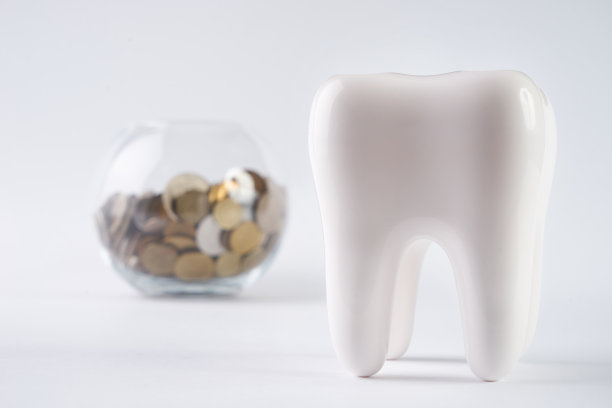Summary: Dental implants are a popular solution for replacing missing teeth, but their success hinges upon various essential precautions both prior to and following the procedure. This article explores four key aspects crucial to ensuring optimal outcomes: comprehensive patient assessment, meticulous surgical techniques, thorough postoperative care, and proactive patient communication. By focusing on these areas, dental practitioners can significantly enhance the likelihood of favorable results, while patients benefit from a smoother recovery and improved oral health overall. The insights provided here are indispensable not only for dental professionals but also for patients considering implants.
1. Comprehensive Patient Assessment is Key

A thorough patient assessment is vital before undertaking dental implant procedures. This begins with a detailed medical history review, where dentists should document any pre-existing conditions that could impede recovery. Conditions such as uncontrolled diabetes or heart disease should be taken seriously, as they may complicate the healing process.
Additionally, an oral examination plays a crucial role in assessing the patients gum health and the quality of the jawbone. Dental imaging, such as X-rays or CT scans, can provide insightful information which helps in planning the implant site effectively. Understanding the anatomy of the area ensures that the implant is placed correctly and securely.
The importance of patient expectations should not be overlooked either. Clear communication about what the patient can expect in terms of results, recovery time, and potential complications is essential. This helps to build trust and ensures that patients are mentally prepared for the procedure ahead.
2. Meticulous Surgical Techniques Matter
During the dental implant surgery itself, the use of meticulous surgical techniques is crucial for securing a successful outcome. Implementing aseptic techniques helps reduce the risk of postoperative infections. Maintaining a sterile environment and using appropriate surgical instruments can significantly impact the healing process.
Moreover, the surgical procedure must be tailored to the individual patient. Surgeons should take into account the patients unique anatomical features and apply the appropriate techniques, such as flap or non-flap surgery, based on the complexity of the case. Precision in placing the implants at correct angles and depths directly affects their integration with the bone.
Post-surgical bleeding must be managed effectively and instructions for care should be given to minimize discomfort and complications. The initial moments after surgery are critical; ensuring that the patient is stable and observes all instructions can make a significant difference in recovery.
3. Thorough Postoperative Care is Essential
Postoperative care is as significant as the surgery itself. Proper aftercare ensures that the patient heals optimally and can enjoy the benefits of their implants long-term. Pain management strategies should be put in place, including prescribed medications and recommended home remedies.
Diet plays an essential role in recovery as well. Patients should be advised to stick to soft foods for a few days to avoid disrupting the surgical site. Hydration is important, but patients should be cautioned against using straws, as the suction can damage the healing tissue.
Regular follow-up appointments are vital to monitor the healing progress. Dentists should check for signs of infection or implant failure early on, which allows for prompt interventions if necessary. Educating patients about what signs to watch for can empower them in actively participating in their postoperative care.
4. Proactive Patient Communication is Crucial
Establishing a proactive communication strategy is crucial for patient satisfaction and optimal outcomes. From the initial consultation to postoperative follow-ups, consistent communication helps to ease patient anxieties. Dentists should make themselves available to answer questions and address any concerns that may arise.
Providing educational materials that detail what to expect during recovery can also contribute to a patient’s understanding and comfort. This can include information on hygiene practices, signs of complications, and general tips for taking care of their new implants.
Active feedback collection after the procedures is also worth mentioning. Patients should be encouraged to share their experiences and outcomes, which can help professionals enhance their care methods and address areas of improvement for future procedures.
Summary:
A successful dental implant procedure is a multifaceted process that requires careful planning, precise execution, and attentive aftercare. By paying close attention to comprehensive patient assessments, employing meticulous surgical techniques, ensuring thorough postoperative care, and fostering proactive patient communication, dental practitioners can create a conducive environment for optimal implant success.
This article is compiled by Vickong Dental and the content is for reference only.
Vickong Dental
Vickong Dental is a large medical group established in Hong Kong in 2008 by professors from well-known medical universities in Guangdong and Hong Kong, as well as medical doctors from key national '985' universities (including Master's supervisors and senior professors). The chain of branches brings together expert dentists with PhDs and Master's degrees from Hong Kong and Mainland China, committed to providing high-quality dental treatment.
"Vickong Dental Practices the University Motto of 'Healing and Serving Society,' with a Stable Operation for Sixteen Years. It Has Been honored with Hong Kong Enterprise Leaders's Choice,' and is a Global Trusted Implant Center for the Nobel Implant System. Recommended by Hong Kong Metro Broadcast and Guangdong Television, it Serves Customers from Over Thirty Countries and Regions, Gaining the Trust and Favor of Citizens from the Guangdong-Hong Kong-Macau Greater Bay Area and Surrounding Cities.

Thousands of customers' unanimous praise
The most recognized and highly recommended dental service by customers in the Guangdong-Hong Kong-Macau Greater Bay Area
We Ensure You Receive Detailed Care and Attention Here
Hong Kong standards, Shenzhen prices, Your Trusted English-speaking dentists

Vickong Dental Medical-Grade Instrument Disinfection Process
Vickong Dental Medical-Grade Instrument Disinfection Process

Vickong Dental Chain: A Warm and Comfortable Environment for Treatment






Appointment Hours

Q&A
Why choose Vickong Dental?
Vickong Dental practices the university motto 「Medicine to Benefit Society」, with each branch bringing together highly qualified dentists with doctoral and master’s degrees from Hong Kong and the Mainland, and has maintained seventeen years of steady operation。Recipient of 「2024 Hong Kong Enterprise Leaders Brand」, 「2025 Hong Kong Enterprise Leaders Brand」, a Nobel Biocare Global Trusted Implant Center, and a brand recommended by Metro Radio Hong Kong and Guangdong TV。
To date, we have served customers from more than thirty countries and regions,earning exceptionally high word-of-mouth recognition and trusted recommendations from residents across the Guangdong-Hong Kong-Macao Greater Bay Area and surrounding cities
We have eight major branches in Zhuhai、Shenzhen,and a consultation and service assurance center in Hong Kong,so you can book a free consultation at any time for any questions,which is very reassuring.
If I do not accept the quotation after the CT scan, will I be charged??
No! As long as the actual treatment has not started, you will not be charged any fees.
Will there be any additional charges during the treatment process?
No, there won’t be any additional charges. Before treatment begins, we will clearly explain the treatment plan and its corresponding fees. Only after the patient agrees and signs the consent form will we proceed with the dental service.
Can I pay in Hong Kong dollars?
Yes. Vickong Dental accepts payment in Hong Kong dollars. The amount will be converted based on the exchange rate of the day, and the applicable rate will be clearly communicated to you in advance.
Can I reschedule my appointment at any time?
Yes. Please contact us via **WeChat** or **WhatsApp** as early as possible, providing your original appointment time and details, along with your preferred new date and time slot for rescheduling.













